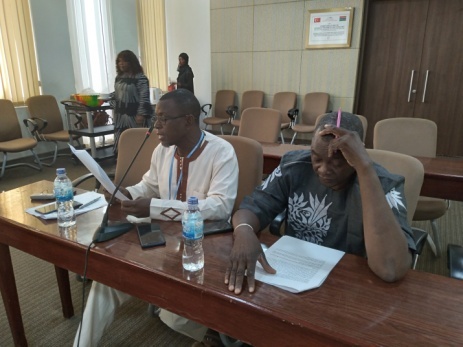
Presenting the document before the committee, Dr Demba Trawelleh, deputy director of NARI, said the Veterinary Services (VS) of The Gambia, which is mandated to prevent and control livestock diseases in the country’s national herds and other health-related matters, has been “struggling to meet its functions, within the confines of the other obsolete Diseases of Animals Act, 1944”.
According to Trawalleh, the Act has become obsolete in the face of a rapidly changing world, in terms of priority needs, climate change and in meeting food safety, food security and compliance with international standards.
The animal health bill is out to address these uncertainties and future developments in an adequate way, DG Trawalleh told the committee, adding that it also underpins an extensive review of the Diseases of Animals Act, 1944, considering complex interactions between socio-economic factors, political developments, climate change, and the global context with the objective of producing a new robust version in the face of a changing livestock sub-sector and climate.
The advocated Animal Health Bill, 2020, currently being reviewed by NAMs, has a holistic approach to disease control; food safety, international trade in livestock, farmer compensation and regulation of the importation, manufacture, composition, etc of livestock drugs and feed will undoubtedly unlock the potentials of the livestock sub-sector in enchancing household and national food and nutrition security, through an increase in both farmer income and in livestock production and productivity, thus putting the country in the right footing in playing a major role in international trade in livestock.
He said: “The bill, if enacted and its provisions properly implemented, will improve both animal and human health, increase our national herd population and enable the sub-sector generate the much-needed foreign currency from the sale of livestock and livestock products beyond our borders.”
Trawalleh added that Botswana and Namibia are among a few countries in Africa that have free access to the European market for their livestock and livestock products, mainly because of the animal health policies, pursued by their respective governments.
“We as a country can achieve the same, by enacting this bill,” he said.





